This article provides insights on navigating the legal landscape in Denver, Colorado, focusing on how to find qualified attorneys for various legal cases.
Understanding Personal Injury Cases
Personal injury cases often arise from accidents or negligence. To find the right attorney, consider looking for those with a strong track record in personal injury law. Check their success rate in similar cases and seek testimonials from previous clients. You can also explore platforms like Avvo or Martindale-Hubbell for reviews and ratings.
Medical Malpractice: Finding the Right Attorney
Medical malpractice cases require specialized knowledge. It’s essential to find an attorney who has experience in medical negligence claims. Look for board certifications and experience in handling similar cases. Additionally, ensure they have a solid understanding of medical terminology and procedures, which can significantly affect the case’s outcome.
Breach of Contract: Legal Representation Essentials
Breach of contract cases can be intricate. When searching for a lawyer, prioritize those with experience in contract law. Evaluate their past cases and results, and inquire about their negotiation skills, as many breaches can be settled out of court.
Navigating Property Disputes in Denver
Property disputes can be contentious. Finding an attorney skilled in real estate law is essential for effective representation. Look for lawyers who are familiar with Denver’s local laws and regulations, as they can provide valuable insights and strategies tailored to your situation.
Landlord-Tenant Disputes: Key Considerations
Landlord-tenant disputes are common in Denver. Understanding your rights and finding a knowledgeable attorney can make a difference in your case. Seek attorneys who specialize in landlord-tenant law and have a good understanding of the local housing market and tenant rights.
Defamation Cases: Selecting the Right Legal Counsel
Defamation cases, involving libel and slander, require a nuanced understanding of communication laws. Look for attorneys with experience in media law and a successful track record in defamation cases. Their familiarity with the intricacies of free speech and public interest can be crucial.
Employment Disputes: Finding Expert Legal Help
Employment disputes can range from wrongful termination to harassment. Knowing how to find a competent attorney is crucial for navigating these sensitive issues. Seek lawyers who specialize in employment law and have experience with similar cases. Check their credentials and client reviews to ensure they are trustworthy.
Understanding Product Liability Cases
Product liability cases involve injuries caused by defective products. Identifying the right legal representation is essential for achieving justice. Look for attorneys with expertise in product liability and a history of winning cases against large corporations.
Wrongful Death Claims: Seeking Justice
Wrongful death cases require compassionate yet assertive legal representation. Here’s how to find attorneys who specialize in this sensitive area. Seek lawyers with a proven track record in wrongful death cases and those who can demonstrate empathy and understanding of the emotional aspects involved.
Class Action Lawsuits: Finding the Right Lawyer
Class action lawsuits can be complex and lengthy. Understanding how to choose the right attorney can greatly affect the outcome of your case. Look for attorneys who have successfully led class action suits and have a deep understanding of the legal framework surrounding them.
Assault and Battery: Legal Representation Needs
Assault and battery cases often involve criminal and civil components. Selecting an attorney with experience in both areas is crucial. Look for lawyers with a background in criminal defense and personal injury law to ensure comprehensive representation.
Drug Offenses: Navigating Legal Challenges
Drug offenses can lead to severe penalties. Finding an attorney who specializes in criminal defense is essential for your case. Seek lawyers who have a strong understanding of drug laws and a history of successfully defending clients in similar situations.
Theft and Burglary: Legal Guidance Essentials
Theft and burglary charges can have serious repercussions. Here’s how to find a skilled criminal defense attorney in Denver. Look for lawyers with experience in theft cases and a solid understanding of the local legal landscape to navigate your case effectively.
Fraud and Embezzlement: Selecting the Right Counsel
Fraud and embezzlement cases require attorneys with expertise in white-collar crime. Knowing what to look for is key to effective representation. Seek lawyers who have experience in financial fraud cases and can provide a strategic defense tailored to your circumstances.
Murder and Homicide: Finding Experienced Defense Attorneys
Murder and homicide cases are the most serious criminal charges. Selecting an experienced defense attorney is crucial for navigating these complex legal waters. Look for lawyers with a strong background in criminal defense and a history of handling high-profile cases.
DUI/DWI: Legal Representation in Denver
DUI/DWI charges can lead to significant consequences. Understanding how to find a proficient attorney can help mitigate these risks. Seek lawyers who specialize in DUI law and have a successful track record in defending similar cases.
Domestic Violence: Finding Compassionate Legal Help
Domestic violence cases require sensitive handling. Knowing how to find a compassionate yet assertive attorney is essential for victims seeking justice. Look for lawyers experienced in domestic violence cases who prioritize the well-being of their clients.

Understanding Personal Injury Cases
Understanding personal injury cases is essential for anyone who may find themselves involved in an accident or who has suffered due to someone else’s negligence. These cases can encompass a wide range of incidents, from car accidents and slip-and-fall cases to medical malpractice and product liability. Each type of personal injury case has its own unique nuances, making it crucial to select the right legal representation.
Personal injury cases often arise when an individual suffers harm due to the negligent actions of another party. This negligence can manifest in various ways, including:
- Automobile Accidents: These are among the most common personal injury claims and can involve collisions between vehicles, pedestrians, or cyclists.
- Slip and Fall Accidents: Property owners have a duty to maintain safe environments. If someone slips and falls due to a hazardous condition, they may have a valid claim.
- Medical Malpractice: This occurs when healthcare professionals fail to provide the standard of care, leading to patient injury.
- Product Liability: Manufacturers and sellers can be held liable if a defective product causes injury to consumers.
When pursuing a personal injury case, it is crucial to demonstrate that the other party was negligent and that their negligence directly caused your injuries. This often involves gathering evidence, including medical records, witness statements, and accident reports.
To find the right attorney for your personal injury case, consider the following:
- Experience: Look for attorneys who specialize in personal injury law and have a proven track record of successful cases.
- Reputation: Research online reviews and ask for referrals to gauge the attorney’s reputation among former clients.
- Communication: Choose a lawyer who communicates clearly and is willing to keep you informed throughout the legal process.
- Contingency Fee Basis: Many personal injury attorneys work on a contingency fee basis, meaning they only get paid if you win your case. This can alleviate financial pressure while pursuing your claim.
Additionally, be wary of red flags such as attorneys who make unrealistic promises or pressure you to sign contracts quickly. A trustworthy attorney will take the time to explain your options and ensure you understand the process ahead.
In summary, understanding the complexities of personal injury cases is essential for selecting the right legal representation. By focusing on experience, reputation, communication, and fee structures, individuals can better navigate the often challenging landscape of personal injury law.

Medical Malpractice: Finding the Right Attorney
When it comes to medical malpractice, the stakes are incredibly high. Victims may suffer long-term consequences due to negligence in healthcare settings. Therefore, finding an attorney with the right expertise in this complex field is crucial. Here’s a guide to help you identify the best legal representation for your medical malpractice case.
- Specialization in Medical Malpractice: Look for attorneys who specialize specifically in medical malpractice law. This area requires not only a strong understanding of legal principles but also a grasp of medical terminology and practices. An attorney with a background in healthcare or extensive experience in medical malpractice cases will be better equipped to handle your case.
- Track Record of Success: Investigate the attorney’s history with medical malpractice cases. A proven track record of successful settlements or verdicts can be a strong indicator of their capability. Look for testimonials and case results that demonstrate their effectiveness in similar situations.
- Understanding of Medical Standards: A competent medical malpractice attorney should have a thorough understanding of medical standards and practices. They should be able to consult with medical experts to evaluate whether the care you received fell below the accepted standard.
- Client Reviews and Recommendations: Research online reviews and ask for recommendations from friends or family who may have dealt with similar issues. Websites like Avvo and Martindale-Hubbell provide ratings and reviews that can help you gauge an attorney’s reputation.
- Transparent Communication: Choose an attorney who communicates clearly and transparently. They should be willing to explain the legal process, potential outcomes, and the fees involved without any hidden surprises. You should feel comfortable asking questions and discussing your concerns.
- Initial Consultation: Most medical malpractice attorneys offer a free initial consultation. Use this meeting to assess their knowledge, approach, and whether you feel comfortable working with them. Pay attention to how they listen to your concerns and the strategies they propose.
- Contingency Fee Structure: Many medical malpractice attorneys work on a contingency fee basis, meaning they only get paid if you win your case. This arrangement can alleviate the financial burden of hiring legal representation upfront. However, ensure you fully understand the fee agreement before signing any contracts.
- Local Expertise: Consider hiring an attorney who practices in your local area. Familiarity with local courts and judges can be beneficial in navigating your case effectively. They may also have established relationships with local medical experts who can provide valuable testimony.
In summary, finding the right attorney for a medical malpractice case involves careful consideration of their specialization, track record, communication skills, and fee structure. By taking these steps, you can ensure that you have qualified legal representation to advocate for your rights and seek the compensation you deserve.
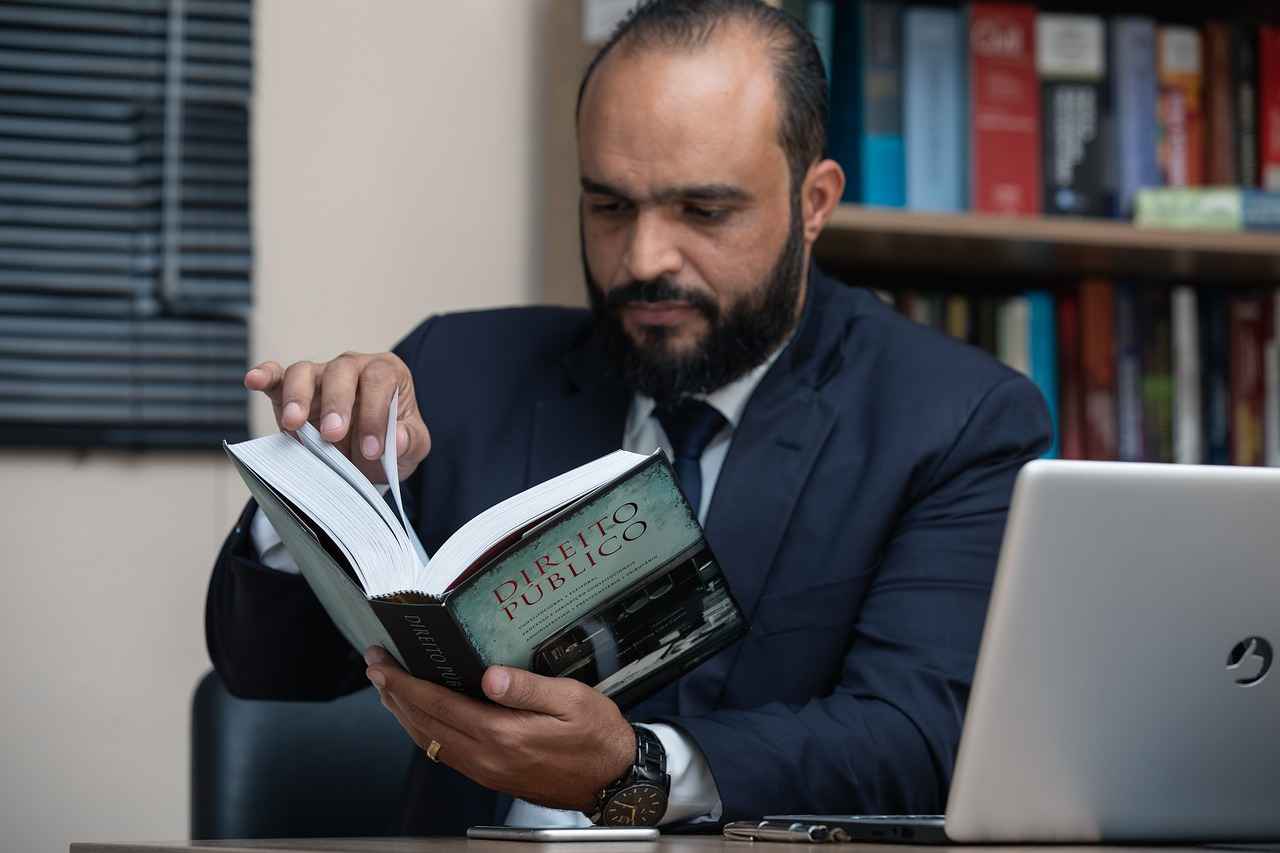
Breach of Contract: Legal Representation Essentials
Breach of contract cases can be quite intricate, often involving complex facts and legal principles. When facing such a situation, knowing what to look for in a lawyer is crucial, as it can significantly impact the outcome of your case. Here are some essential factors to consider when searching for legal representation in breach of contract cases.
- Experience in Contract Law: Look for an attorney who specializes in contract law. Their experience will provide them with a deeper understanding of the nuances involved in breach of contract cases. An attorney with a proven track record in similar cases will likely be more adept at navigating the legal landscape.
- Negotiation Skills: Since many breach of contract cases are resolved before reaching the courtroom, your attorney should possess strong negotiation skills. A lawyer who can effectively negotiate settlements can save you time and money while achieving a favorable outcome.
- Litigation Experience: While many cases settle, it’s important to have an attorney who is not afraid to take your case to court if necessary. Look for a lawyer with substantial litigation experience, as they will be better equipped to handle the complexities of a trial.
- Understanding of Your Industry: If your breach of contract case involves specific industry practices, it’s beneficial to hire an attorney who understands those nuances. This knowledge can be vital in building a strong case.
- Client Testimonials and References: Research potential attorneys through online reviews and testimonials. Speaking to previous clients can provide insight into their experiences and the attorney’s effectiveness in handling breach of contract cases.
- Transparent Fee Structure: Understanding how your attorney charges for their services is crucial. Look for a lawyer who offers a clear and transparent fee structure, whether it be hourly rates, flat fees, or contingency fees. This clarity will help you avoid unexpected costs down the line.
- Communication Skills: Effective communication is key in any legal matter. Ensure that the attorney you choose is responsive and willing to keep you informed throughout the process. A lawyer who communicates well will help alleviate your concerns and keep you engaged in your case.
In summary, finding the right lawyer for a breach of contract case requires careful consideration of their experience, negotiation skills, and understanding of your specific situation. By focusing on these essential factors, you can enhance your chances of a favorable outcome in your legal dispute.

Navigating Property Disputes in Denver
Property disputes can often lead to contentious legal battles, making it crucial for individuals involved to secure competent legal representation. Whether the issue arises from boundary disagreements, lease violations, or ownership claims, having an attorney who specializes in real estate law is essential for effective resolution.
In Denver, property disputes can stem from a variety of sources, including homeowners’ associations, landlord-tenant conflicts, and even disputes between neighbors. Each of these issues requires a nuanced understanding of local laws and regulations. Therefore, finding the right attorney is vital for navigating these complex situations.
Here are some practical steps to help you find a qualified real estate attorney in Denver:
- Research Online: Utilize legal directories such as Avvo or FindLaw to locate attorneys specializing in real estate law. Look for those with high ratings and positive client reviews.
- Check Credentials: Ensure that the attorney you consider is licensed to practice in Colorado and has a background in property law. Membership in organizations like the Colorado Bar Association can also indicate a commitment to their field.
- Seek Recommendations: Ask friends, family, or colleagues if they can recommend an attorney. Personal referrals can often lead to finding trustworthy legal representation.
- Schedule Consultations: Most attorneys offer free initial consultations. Use this opportunity to discuss your case and gauge the attorney’s expertise and communication style.
- Evaluate Experience: Inquire about the attorney’s experience with similar cases. An attorney who has handled numerous property disputes will be more adept at navigating the intricacies of your situation.
When meeting with potential attorneys, consider asking the following questions:
- What is your experience with property disputes similar to mine?
- What strategies do you typically employ in these cases?
- How do you charge for your services, and what are the estimated costs?
- Can you provide references from past clients?
It is also important to be aware of red flags when selecting an attorney. Avoid those who:
- Make unrealistic promises about the outcome of your case.
- Are unwilling to provide references or answer your questions.
- Have a history of disciplinary actions or complaints.
Once you have selected an attorney, maintaining open communication is key. Ensure that you provide them with all necessary documentation and stay updated on your case’s progress. Your attorney should be proactive in keeping you informed about any developments.
In conclusion, navigating property disputes in Denver requires careful consideration when selecting legal representation. By following these guidelines and being diligent in your search, you can find a qualified attorney who will advocate effectively on your behalf.

Landlord-Tenant Disputes: Key Considerations
Landlord-tenant disputes are a prevalent issue in Denver, as in many urban areas across the United States. These conflicts can arise from a variety of situations, including disagreements over lease terms, security deposits, maintenance responsibilities, and eviction processes. Understanding your rights as a tenant or landlord is crucial to navigating these disputes effectively. Moreover, enlisting the help of a knowledgeable attorney can significantly influence the outcome of your case.
In Denver, the legal landscape surrounding landlord-tenant relationships is governed by both state and local laws. Tenants have specific rights, such as the right to a habitable living environment and protection against unfair eviction practices. Conversely, landlords also have rights, including the right to enforce lease agreements and to seek legal recourse in cases of non-payment or property damage. Familiarizing yourself with these rights is the first step in resolving disputes amicably.
When searching for an attorney to assist with landlord-tenant disputes, consider the following key factors:
- Experience in Landlord-Tenant Law: Look for attorneys who specialize in real estate law, particularly those with a focus on landlord-tenant issues. Their expertise will provide you with valuable insights into your case.
- Reputation: Research potential attorneys through online reviews, testimonials, and referrals from friends or family. A well-regarded attorney is likely to have a track record of successful outcomes in similar cases.
- Communication Skills: Effective communication is essential in legal matters. Choose an attorney who listens to your concerns and clearly explains your options.
- Fee Structure: Understanding the attorney’s fee structure is vital. Some may charge hourly rates, while others may work on a contingency basis. Ensure you are comfortable with the payment arrangement before proceeding.
Additionally, it is advisable to avoid attorneys who make unrealistic promises or guarantees regarding the outcome of your case. Legal disputes can be unpredictable, and no attorney can assure a specific result. Instead, look for professionals who provide a realistic assessment of your situation and outline potential strategies for resolution.
In Denver, various resources are available to help tenants and landlords resolve disputes. The city offers mediation services that can facilitate discussions between parties, often leading to mutually beneficial agreements without the need for litigation. Furthermore, local legal aid organizations can provide assistance to those who may not be able to afford private legal representation.
Ultimately, understanding your rights and responsibilities as a tenant or landlord, along with the guidance of an experienced attorney, can make a significant difference in the resolution of disputes. By taking proactive steps and seeking legal counsel when necessary, you can navigate the complexities of landlord-tenant law in Denver with confidence.
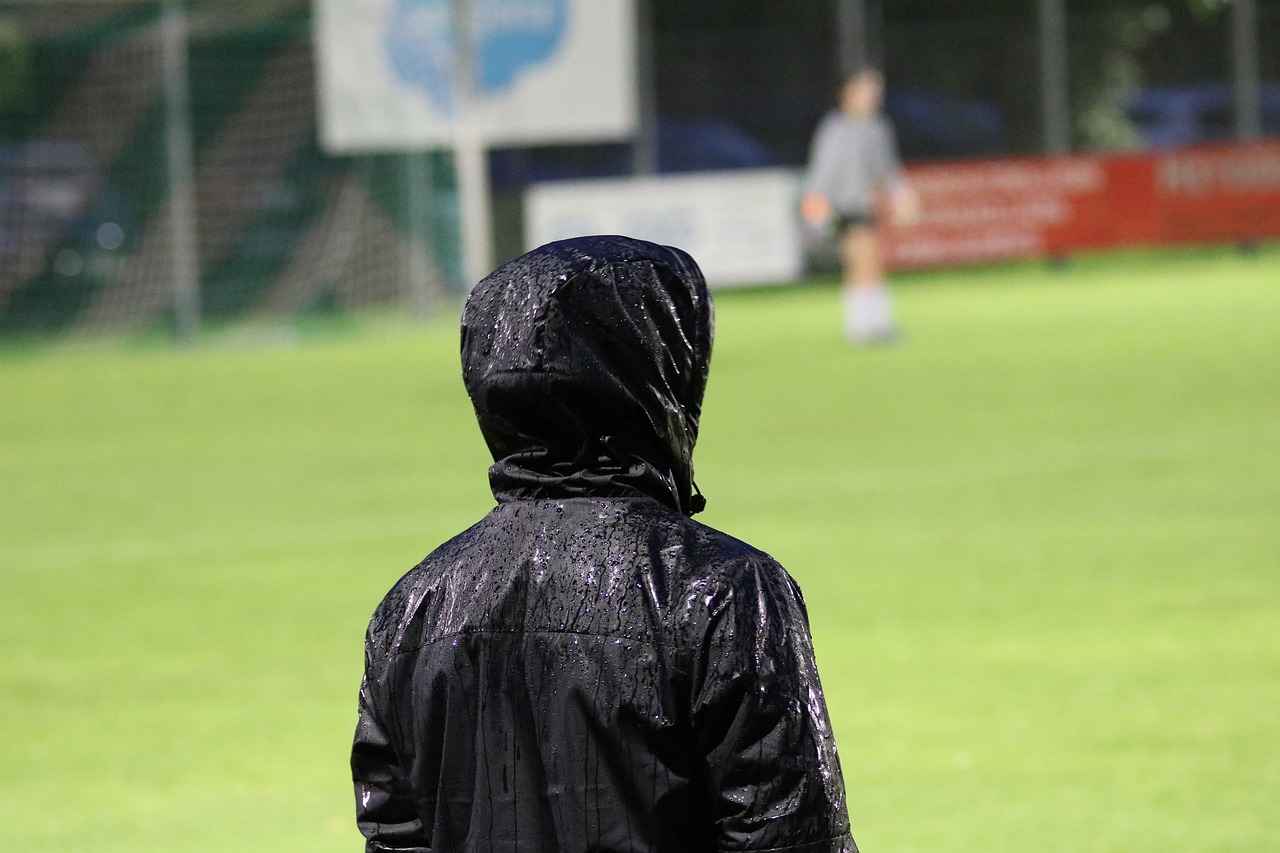
Defamation Cases: Selecting the Right Legal Counsel
Defamation cases, which encompass both libel and slander, are intricate legal matters that require a thorough understanding of communication laws. These cases arise when false statements are made about an individual or entity, leading to reputational harm. Selecting the right legal counsel for such cases is paramount, as the nuances of defamation law can significantly impact the outcome of your case.
To find a qualified attorney specializing in defamation cases, consider the following steps:
- Research Expertise: Look for attorneys who have a proven track record in handling defamation cases. This includes reviewing their past cases, settlements, and trial experience. Websites like Avvo and FindLaw can provide insights into an attorney’s expertise and client reviews.
- Check Credentials: Ensure that the attorney is licensed to practice in your state and has relevant certifications. Membership in professional organizations, such as the American Bar Association or local bar associations, can indicate a commitment to ongoing education and ethical practice.
- Consultation: Schedule initial consultations with potential attorneys. This meeting allows you to discuss your case and gauge the attorney’s understanding of defamation law. Pay attention to their communication style—an attorney who listens and explains complex legal terms clearly is preferable.
- Evaluate Communication Skills: Defamation cases often involve intricate legal arguments and public perception. Your attorney should be able to articulate your case compellingly and effectively, both in writing and orally.
- Understand Fee Structures: Discuss the attorney’s fee structure upfront. Some attorneys may work on a contingency basis, while others may charge hourly rates or flat fees. Ensure you understand how billing works to avoid any surprises later.
- Ask About Their Approach: Different attorneys have different approaches to handling cases. Some may prefer to settle out of court, while others are more inclined to take cases to trial. Understanding their strategy can help you align your expectations with their methods.
In major metropolitan areas like New York City, Los Angeles, and Chicago, the competition among attorneys can be fierce. Therefore, leveraging online platforms, seeking referrals from trusted sources, and conducting thorough background checks are essential steps in your search for legal representation.
Additionally, be wary of red flags when selecting an attorney. These may include:
- Lack of transparency regarding fees and costs.
- Negative reviews or a history of disciplinary actions.
- Inability to provide clear examples of past successes in defamation cases.
- Pressure to sign contracts or make decisions quickly without adequate time to consider your options.
By following these guidelines and remaining diligent in your search, you can find a qualified attorney who will advocate effectively on your behalf in defamation cases. Remember, the right legal counsel can make a significant difference in the outcome of your case, protecting your reputation and ensuring that justice is served.

Employment Disputes: Finding Expert Legal Help
Employment disputes can encompass a wide range of issues, including wrongful termination, harassment, and discrimination. These sensitive matters often require the expertise of a competent attorney who specializes in employment law. Understanding how to find the right legal representation is crucial for navigating these complex situations.
When searching for an attorney to handle an employment dispute, consider the following key factors:
- Specialization in Employment Law: Look for attorneys who specifically focus on employment law. They should have a deep understanding of federal and state labor laws, including the Fair Labor Standards Act and the Equal Employment Opportunity Commission guidelines.
- Experience and Track Record: An attorney with a proven track record in handling employment disputes will be more equipped to navigate the intricacies of your case. Ask about their past cases and outcomes to gauge their effectiveness.
- Client Reviews and Testimonials: Research online reviews and client testimonials. Websites like Avvo and Martindale-Hubbell can provide insights into an attorney’s reputation and client satisfaction.
- Initial Consultation: Many attorneys offer a free initial consultation. Use this opportunity to discuss your case, ask questions, and evaluate whether you feel comfortable with their approach.
- Fee Structure: Understand the attorney’s fee structure upfront. Some may work on a contingency basis, while others may charge hourly rates. Ensure that you are clear about potential costs to avoid surprises later.
Additionally, it is important to recognize potential red flags when selecting an attorney:
- Lack of Communication: If an attorney is difficult to reach or does not respond promptly to your inquiries, this may indicate a lack of commitment to your case.
- Vague Promises: Be wary of attorneys who guarantee specific outcomes. Legal cases can be unpredictable, and no attorney can promise a particular result.
- Pressure Tactics: Avoid attorneys who pressure you into making quick decisions. A good attorney will provide you with the information you need to make informed choices.
In major metropolitan areas such as New York City, Los Angeles, and Chicago, you can also find specialized legal directories and bar associations that can help connect you with qualified employment attorneys. For instance, the New York State Bar Association offers a lawyer referral service that can match you with attorneys based on your specific needs.
Ultimately, finding the right attorney for your employment dispute can significantly influence the outcome of your case. Take the time to conduct thorough research, ask the right questions, and trust your instincts when making your choice. With the right legal guidance, you can navigate your employment dispute with confidence.

Understanding Product Liability Cases
Product liability cases are a significant area of law that deals with injuries and damages caused by defective or unsafe products. These cases can arise from various types of products, including consumer goods, pharmaceuticals, electronics, and automobiles. Understanding the intricacies of product liability is crucial for victims seeking justice and compensation for their injuries.
In the realm of product liability, there are typically three main types of defects that can lead to a claim:
- Design Defects: These occur when the product’s design is inherently unsafe, even if it is manufactured correctly. An example would be a car that has a tendency to roll over due to its design.
- Manufacturing Defects: This type of defect happens during the production process, leading to a product that is different from the intended design. For instance, a batch of medication that is contaminated during manufacturing.
- Marketing Defects: These involve improper instructions or failure to warn consumers about potential dangers associated with the product. An example could be a household cleaner that does not include warnings about its toxic ingredients.
When pursuing a product liability case, it is essential to establish that the product was indeed defective and that this defect directly caused the injury. This often requires expert testimony and thorough investigation into the product’s history, design, and manufacturing processes.
Finding the right legal representation for a product liability case can significantly influence the outcome. Here are some practical tips to consider:
- Look for Specialized Experience: Seek attorneys who specialize in personal injury law, specifically those with a focus on product liability. Their expertise will be invaluable in navigating the complexities of your case.
- Check Credentials: Verify the attorney’s credentials, including their education, years of practice, and any relevant certifications. Membership in professional organizations, such as the American Association for Justice, can also be a good indicator of their commitment to this area of law.
- Read Reviews and Testimonials: Online reviews and client testimonials can provide insight into an attorney’s track record and client satisfaction. Look for patterns in feedback regarding their communication skills, case handling, and outcomes.
- Consult Multiple Attorneys: Schedule consultations with several attorneys to discuss your case. This will give you a sense of their approach and whether you feel comfortable working with them.
- Beware of Red Flags: Be cautious of attorneys who guarantee outcomes or pressure you into signing a contract quickly. A reputable attorney will provide honest assessments and allow you to make informed decisions.
In metropolitan areas like New York City, Los Angeles, and Chicago, there are numerous attorneys available, making it essential to do thorough research. Utilize online legal directories, bar association resources, and word-of-mouth referrals to identify qualified candidates. Additionally, local law firms often have a better understanding of state-specific laws and regulations, which can be crucial in product liability cases.
Ultimately, product liability cases can be complex and emotionally taxing. Having a knowledgeable attorney who is dedicated to advocating for your rights can make a significant difference in your pursuit of justice and compensation for your injuries.
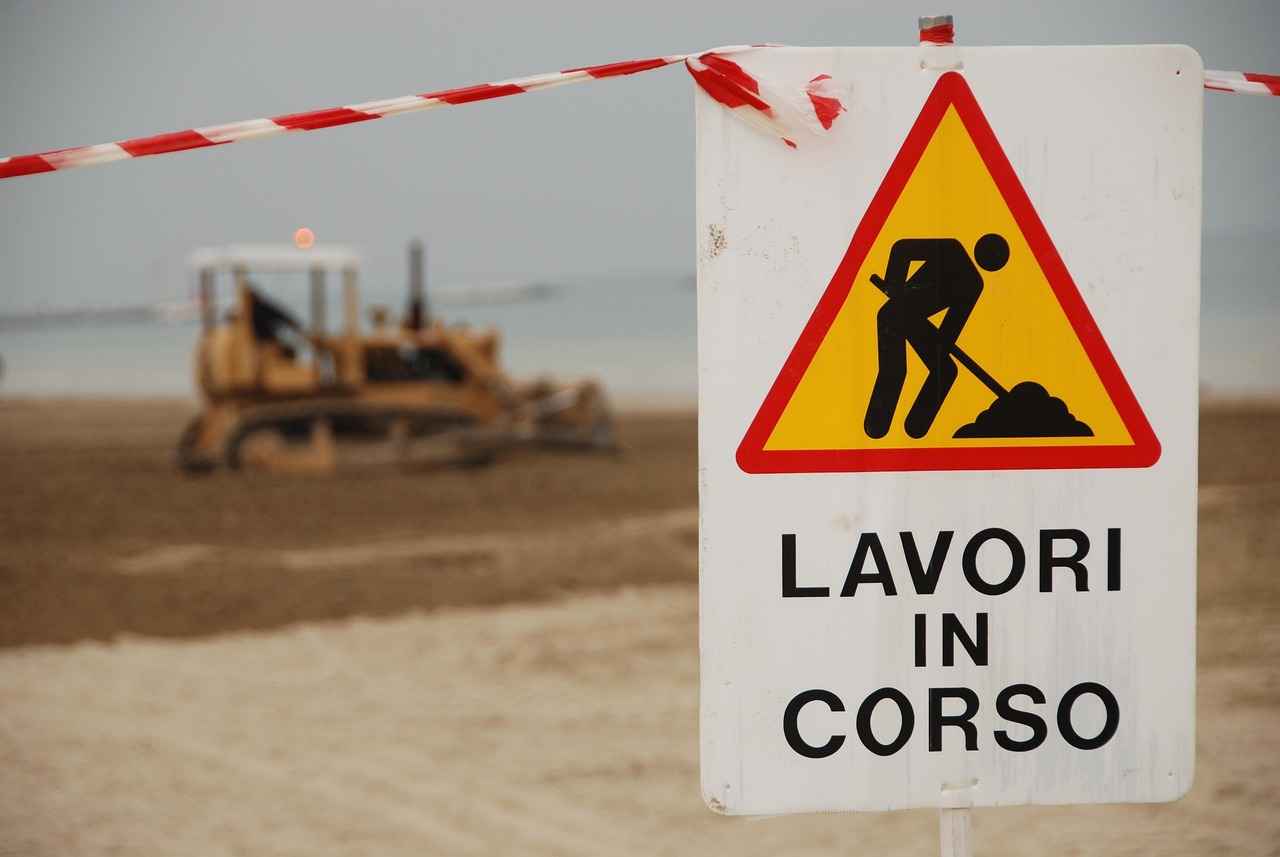
Wrongful Death Claims: Seeking Justice
In the realm of legal matters, wrongful death claims stand out as one of the most emotionally charged and complex types of cases. These claims arise when an individual dies due to the negligence or misconduct of another party, leaving behind grieving family members who seek justice and compensation for their loss. Navigating these sensitive waters requires not just legal knowledge, but also a deep understanding of the emotional toll such cases take on families.
To effectively pursue a wrongful death claim, it is crucial to find an attorney who specializes in this area. Here are some essential steps to ensure you select the right legal representation:
- Research Specialization: Look for attorneys who specifically focus on wrongful death cases. Their experience in handling similar cases will be invaluable in navigating the complexities involved.
- Check Credentials: Review the attorney’s qualifications, including their education, bar association membership, and any awards or recognitions in the field of personal injury law.
- Seek Recommendations: Personal referrals can be an excellent way to find trustworthy attorneys. Ask friends, family, or colleagues if they have any suggestions based on their experiences.
- Consult Online Reviews: Websites like Avvo, Martindale-Hubbell, and Google Reviews can provide insights into an attorney’s reputation and client satisfaction.
- Evaluate Communication: During initial consultations, pay attention to how the attorney communicates. They should listen to your concerns, explain the legal process clearly, and provide honest assessments of your case.
- Assess Experience: Inquire about the attorney’s experience with wrongful death cases specifically. Ask about their success rate, the types of cases they have handled, and their approach to litigation.
- Understand Fee Structures: Many wrongful death attorneys work on a contingency fee basis, meaning they only get paid if you win your case. Ensure you understand their fee structure and any additional costs that may arise.
Additionally, it’s important to be aware of red flags when selecting an attorney. Avoid those who:
- Make unrealistic promises about the outcome of your case.
- Pressure you into signing agreements without fully explaining the terms.
- Have poor communication or are difficult to reach.
- Have a history of disciplinary actions or complaints with the bar association.
In major metropolitan areas like New York City, Los Angeles, and Chicago, the legal market can be competitive. It is essential to take your time to research and interview multiple attorneys to find the best fit for your needs. Remember, your choice of attorney can significantly impact the outcome of your case, so prioritize finding someone who not only has the right expertise but also shows genuine compassion for your situation.
Ultimately, pursuing a wrongful death claim is not just about seeking financial compensation; it is also about holding responsible parties accountable and finding a sense of closure for the grieving family. With the right legal representation, you can navigate this difficult journey with confidence, ensuring that your loved one’s legacy is honored and justice is served.

Class Action Lawsuits: Finding the Right Lawyer
Class action lawsuits represent a powerful tool for individuals seeking justice against large corporations or entities that have caused widespread harm. These cases can be complex and lengthy, often involving numerous plaintiffs and intricate legal procedures. Therefore, understanding how to choose the right attorney can greatly affect the outcome of your case.
When searching for a lawyer to handle a class action lawsuit, it is essential to consider several factors to ensure you find a qualified professional who can effectively represent your interests. Here are some key points to keep in mind:
- Experience in Class Action Cases: Look for attorneys who have a proven track record of handling class action lawsuits. Their experience will give them insights into the unique challenges that arise in these cases, such as managing large groups of plaintiffs and navigating complex legal frameworks.
- Specialization: Choose a lawyer who specializes in the area relevant to your case, whether it be consumer rights, environmental issues, or employment disputes. Specialized knowledge can make a significant difference in the effectiveness of your representation.
- Reputation: Research the attorney’s reputation within the legal community. Online reviews, testimonials, and peer endorsements can provide valuable insights into their professionalism and success rate.
- Resources: Class action lawsuits often require substantial resources for litigation, including expert witnesses and extensive research. Ensure that the attorney you choose has the necessary resources to support your case effectively.
- Communication Skills: Effective communication is vital in legal representation. Your attorney should be able to explain complex legal concepts in a way that you can understand and keep you informed about the progress of your case.
- Fee Structure: Understand the attorney’s fee structure before committing. Many class action attorneys work on a contingency basis, meaning they only get paid if you win your case. Make sure you are comfortable with their terms and any potential costs involved.
In addition to these factors, it is advisable to schedule initial consultations with multiple attorneys. This allows you to ask questions, gauge their expertise, and determine if you feel comfortable working with them. During these meetings, consider asking:
- What is your experience with class action lawsuits similar to mine?
- What is your approach to handling such cases?
- How do you communicate with clients throughout the process?
- What are the potential outcomes, and how long do you anticipate the case will take?
Furthermore, be cautious of red flags that may indicate an attorney is not the right fit for you:
- Lack of Transparency: If an attorney is unwilling to provide clear information about their experience, fees, or the process, it may be a sign to look elsewhere.
- Pushing for Quick Decisions: An attorney who pressures you to make immediate decisions without giving you time to consider your options may not have your best interests in mind.
- Negative Reviews: While every attorney may have a few negative reviews, a pattern of complaints regarding their communication, professionalism, or outcomes should be taken seriously.
In major metropolitan areas like New York City, Los Angeles, and Chicago, there are numerous resources available to find qualified attorneys. Online legal directories, bar association referrals, and legal aid organizations can help you identify potential candidates. Additionally, consider reaching out to local advocacy groups related to your case type, as they may have recommendations for attorneys who are experienced in class action lawsuits.
Ultimately, taking the time to find the right attorney for your class action lawsuit can significantly impact your chances of success. By considering their experience, specialization, reputation, and communication skills, you can make an informed decision that will help guide you through the complexities of your case.
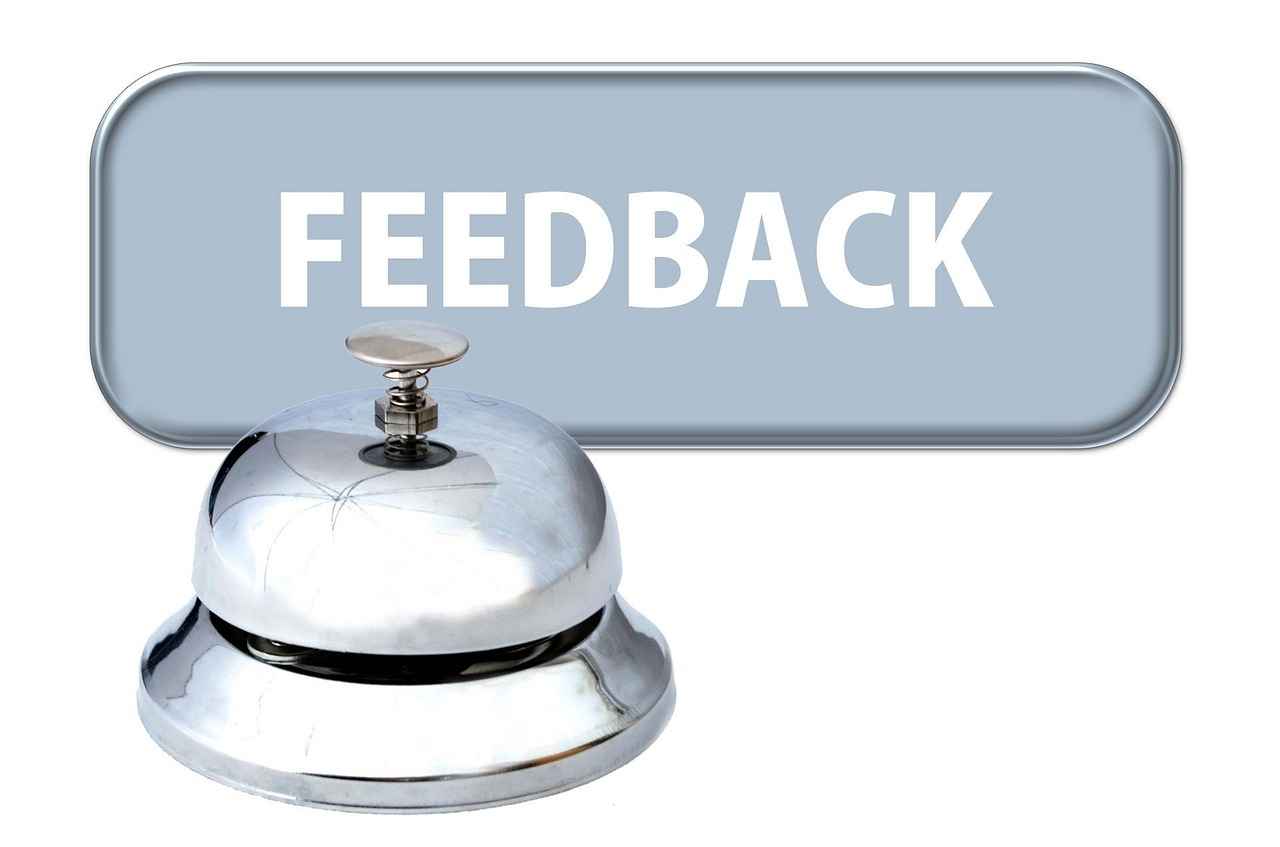
Assault and Battery: Legal Representation Needs
When dealing with assault and battery cases, it is essential to understand that these situations often encompass both criminal and civil components. This dual nature means that individuals involved in such cases may face criminal charges, which can lead to incarceration, as well as civil suits, where victims may seek monetary compensation for their injuries. Therefore, selecting an attorney with experience in both areas is crucial for effective legal representation.
Assault is generally defined as an attempt to cause physical harm to another person, while battery involves the actual physical contact. These definitions may vary by state, and the legal nuances can be complex. An attorney specializing in assault and battery cases will have a thorough understanding of local laws and precedents, which can significantly impact the outcome of your case.
When searching for a qualified attorney in this field, consider the following key aspects:
- Experience in Criminal and Civil Law: Ensure that the attorney has a solid background in both criminal defense and personal injury law. This dual expertise is essential, as they will need to navigate the complexities of both legal systems.
- Track Record: Look for attorneys with a proven history of success in handling assault and battery cases. This can include favorable verdicts in court or successful settlements in civil suits.
- Client Reviews: Online reviews and testimonials can provide insight into an attorney’s reputation and effectiveness. Websites like Avvo and Yelp can be helpful resources.
- Consultation: Most attorneys offer a free initial consultation. Use this opportunity to discuss your case and gauge their understanding and approach. Pay attention to how they communicate and whether they take the time to address your concerns.
- Legal Fees: Understand the attorney’s fee structure upfront. Some may work on a contingency basis for civil cases, meaning they only get paid if you win. Others may charge hourly rates for criminal defense. Be sure to clarify all costs involved.
In addition to these considerations, it is important to be aware of red flags when hiring an attorney. If an attorney guarantees a specific outcome, this should raise concerns. Legal outcomes are inherently uncertain, and any reputable attorney will emphasize that results can vary based on many factors.
Another red flag is a lack of communication. Your attorney should be accessible and responsive to your inquiries. If you find it difficult to reach them or if they do not provide clear answers, it may be wise to seek representation elsewhere.
Furthermore, understanding the local legal landscape is vital. Attorneys who are well-versed in the specific laws and judicial tendencies of your area can provide a significant advantage. For instance, if you are in a major metropolitan area like New York City or Los Angeles, look for attorneys who have experience in those jurisdictions, as they will be familiar with local prosecutors and judges.
Finally, consider the importance of personal rapport. Legal battles can be emotionally taxing, and having an attorney who understands your situation and with whom you feel comfortable can make a significant difference in your experience.
In summary, selecting the right attorney for assault and battery cases requires careful consideration of their experience, track record, and communication style. By taking the time to research and evaluate potential legal representatives, you can ensure that you receive the best possible support in navigating the complexities of your case.
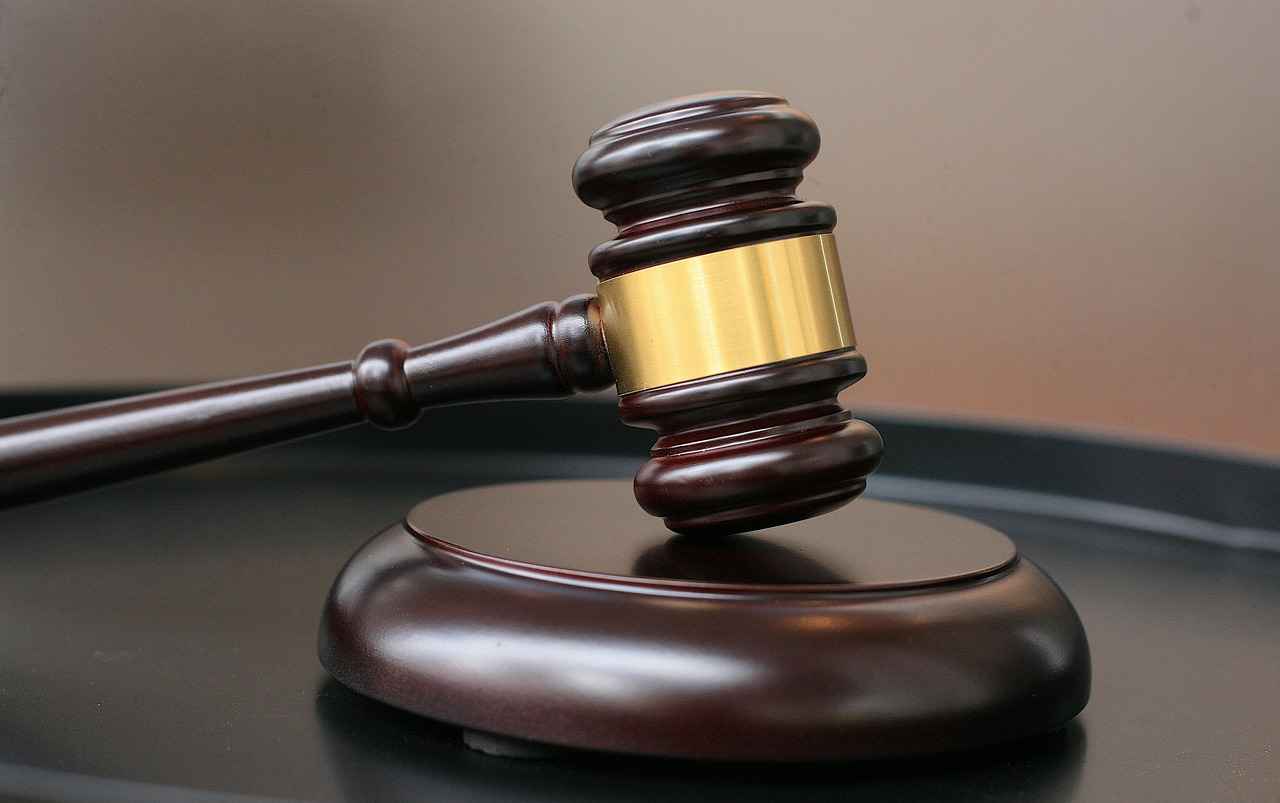
Drug Offenses: Navigating Legal Challenges
Drug offenses represent a significant area of concern within the criminal justice system, often leading to severe penalties that can impact an individual’s life for years. These offenses can range from possession of controlled substances to trafficking and distribution, each carrying its own set of legal challenges and potential consequences. Navigating this complex legal landscape requires specialized knowledge and expertise, making it essential to find an attorney who focuses on criminal defense.
When facing drug-related charges, it’s crucial to seek out an attorney with a robust understanding of both state and federal laws. This expertise is vital, as drug laws can vary significantly depending on the jurisdiction. A qualified attorney will not only understand the specifics of your case but will also be familiar with local courts and judges, which can influence the outcomes of legal proceedings.
Here are some tips for finding the right legal representation for drug offenses:
- Look for Specialization: Seek attorneys who specialize in criminal defense and have a proven track record with drug-related cases. Their experience will be invaluable in navigating the complexities of your situation.
- Check Credentials: Verify the attorney’s qualifications, including their education, bar admissions, and any relevant certifications. Membership in professional organizations such as the National Association of Criminal Defense Lawyers (NACDL) can also indicate a commitment to their field.
- Read Reviews: Online reviews and testimonials can provide insight into the experiences of former clients. Look for patterns in feedback regarding the attorney’s communication skills, effectiveness, and overall client satisfaction.
- Consultation Meetings: Take advantage of initial consultations, which many attorneys offer for free. This meeting allows you to gauge their understanding of your case, their approach to defense, and whether you feel comfortable working with them.
- Assess Communication: Effective communication is crucial in legal matters. Ensure that the attorney is responsive and willing to explain legal terms and processes in a way that you can understand.
In addition to these tips, be cautious of red flags when selecting an attorney. Avoid those who guarantee specific outcomes or pressure you into making quick decisions. An ethical attorney will provide realistic expectations and allow you the time to consider your options.
Ultimately, the right attorney can make a significant difference in the outcome of your case. By conducting thorough research and asking the right questions, you can find a legal professional who will advocate for your rights and work diligently to achieve the best possible result in your drug offense case.

Theft and Burglary: Legal Guidance Essentials
Theft and burglary charges can lead to serious legal repercussions, including hefty fines and imprisonment. If you find yourself facing such charges in Denver, it is crucial to secure the services of a skilled criminal defense attorney who can navigate the complexities of the legal system on your behalf. Here are some essential steps to help you find the right attorney.
- Research Local Attorneys: Start by searching for criminal defense attorneys in Denver who specialize in theft and burglary cases. Websites like Avvo and FindLaw provide comprehensive listings of attorneys, including their areas of expertise, client reviews, and ratings.
- Check Credentials: Look for attorneys who have a proven track record in handling theft and burglary cases. This includes reviewing their education, years of experience, and any specialized training in criminal law.
- Read Client Reviews: Client testimonials can offer valuable insights into an attorney’s effectiveness and approach to handling cases. Pay attention to feedback regarding their communication skills and success rates.
- Schedule Consultations: Most attorneys offer free initial consultations. Use this opportunity to discuss your case and gauge the attorney’s understanding of the law, as well as their strategy for your defense.
- Assess Communication Style: Effective communication is vital in any attorney-client relationship. Choose an attorney who listens to your concerns and explains legal concepts clearly.
- Evaluate Cost: Understand the attorney’s fee structure before hiring them. Some may charge a flat fee, while others might bill hourly. Be wary of any hidden costs that could arise during the legal process.
- Look for Red Flags: Be cautious of attorneys who make unrealistic promises or guarantee outcomes. A reputable attorney will provide a realistic assessment of your case and outline potential challenges.
By following these steps, you can find a qualified attorney in Denver who will advocate for your rights and help you navigate the legal challenges associated with theft and burglary charges. Remember, the right legal representation can make a significant difference in the outcome of your case.

Fraud and Embezzlement: Selecting the Right Counsel
When dealing with fraud and embezzlement cases, it is crucial to seek attorneys who possess specialized expertise in white-collar crime. These cases often involve complex financial transactions and intricate legal frameworks that require a deep understanding of both criminal and civil law. Here are some key considerations for selecting the right legal counsel in these matters.
- Experience in White-Collar Crime: Look for attorneys who have a proven track record in handling fraud and embezzlement cases. Their experience should include not only defense but also prosecution, as this dual perspective can provide valuable insights into how cases are built and argued.
- Educational Background: Attorneys with advanced degrees in finance, accounting, or business law can offer a significant advantage. Their understanding of financial principles is essential when dissecting complex transactions.
- Reputation and Reviews: Research potential attorneys through online platforms such as Avvo or Martindale-Hubbell. Pay attention to client reviews and peer endorsements, which can provide insight into their effectiveness and professionalism.
- Consultation: Schedule initial consultations to gauge the attorney’s approach to your case. Ask pointed questions about their previous cases, strategies, and outcomes. A good attorney will be transparent about their methods and what you can expect.
- Fee Structure: Understand how the attorney charges for their services. Some may work on a contingency basis, while others might charge hourly rates. Ensure that their fee structure aligns with your financial situation.
In the realm of fraud and embezzlement, early intervention is critical. The sooner you engage a knowledgeable attorney, the better your chances of a favorable outcome. These cases can escalate quickly, and having an advocate who understands the nuances of financial crime is essential.
Additionally, be wary of red flags when selecting legal counsel. If an attorney guarantees a specific outcome or seems overly eager to take your case without a thorough assessment, these may be signs to reconsider. Trust your instincts and prioritize finding someone who is not only competent but also aligns with your values and needs.
In summary, selecting the right attorney for fraud and embezzlement cases involves careful consideration of their experience, educational background, reputation, and communication style. By taking the time to research and consult with potential attorneys, you can find a legal professional who will effectively represent your interests in these complex legal matters.
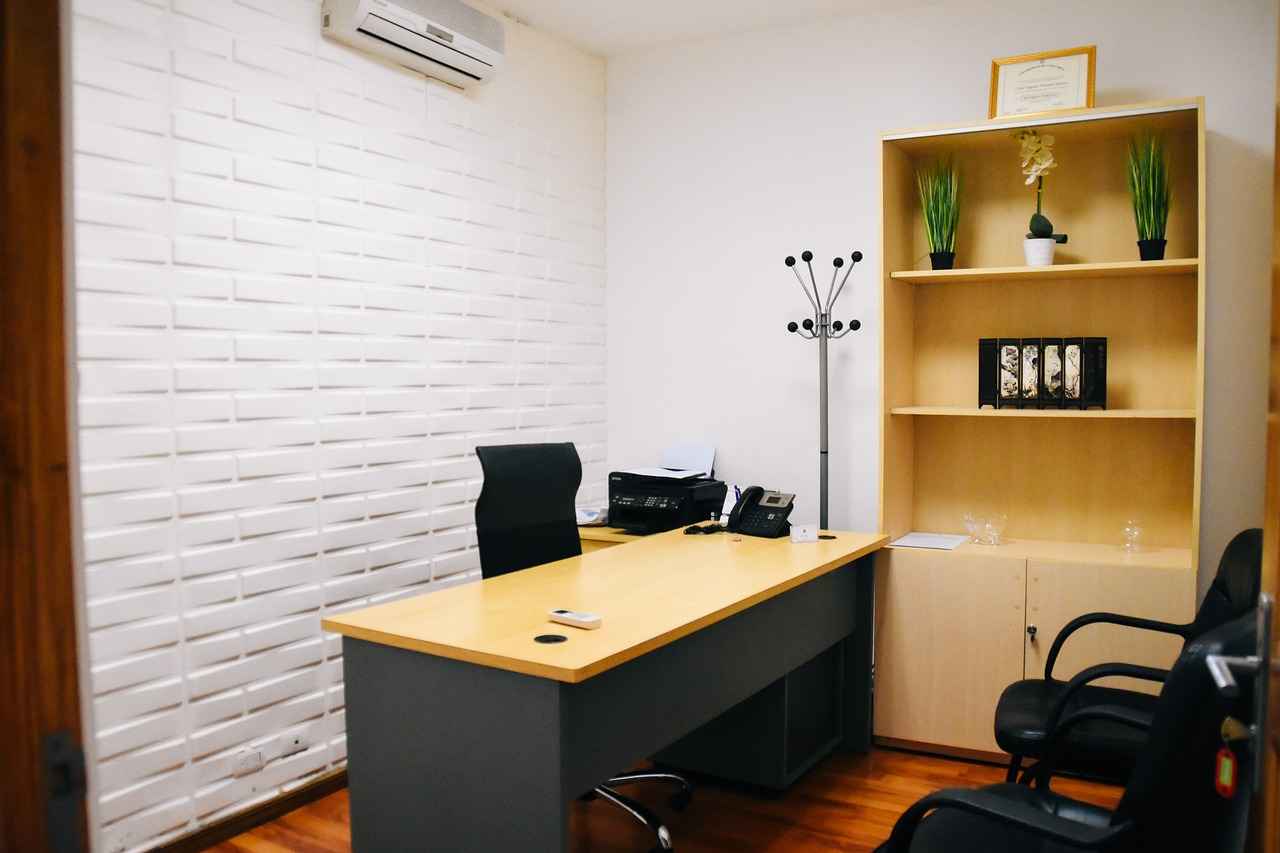
Murder and Homicide: Finding Experienced Defense Attorneys
Murder and homicide cases represent some of the most severe criminal charges an individual can face. These allegations carry significant consequences, including lengthy prison sentences and a permanent criminal record. The stakes are incredibly high, making it essential to select an experienced defense attorney who can navigate the complexities of the legal system effectively. In this section, we will explore how to find the right defense attorney for murder and homicide cases.
- Understand the Nature of the Charges: Before seeking legal representation, it is crucial to understand the specific charges you are facing. Murder and homicide can differ in terms of intent, circumstances, and potential defenses. Familiarizing yourself with these distinctions can help you communicate more effectively with potential attorneys.
- Look for Specialized Experience: Not all criminal defense attorneys have the expertise necessary for handling murder and homicide cases. Seek out attorneys who specialize in criminal law, particularly those with a proven track record in serious felony cases. Look for their past case outcomes and any notable verdicts.
- Check Credentials and Reviews: When evaluating potential attorneys, consider their education, years of experience, and professional affiliations. Reviews and testimonials from former clients can provide insight into their effectiveness and approach. Websites like Avvo and Martindale-Hubbell can be valuable resources for this information.
- Assess Communication Skills: Effective communication is key in any legal case. During initial consultations, pay attention to how well the attorney listens and responds to your questions. A good defense attorney should be able to explain complex legal concepts in a way that you can understand.
- Evaluate Their Strategy: Inquire about the attorney’s approach to defense strategies in murder and homicide cases. They should be able to articulate a clear plan of action and discuss potential defenses that may apply to your situation. Understanding their methodology can help you gauge their competence.
- Discuss Fees and Payment Plans: Legal representation in serious criminal cases can be costly. Be sure to discuss fees upfront and inquire about payment plans or financing options. Transparency regarding costs can help avoid misunderstandings later in the process.
- Trust Your Instincts: Finally, trust your gut feeling when selecting an attorney. You need someone you feel comfortable with, as your relationship with your attorney can significantly impact your case’s outcome.
Finding the right defense attorney for murder and homicide cases is a critical step in ensuring a fair trial and the best possible outcome. By taking the time to research and evaluate potential candidates, you can secure legal representation that meets your needs and helps navigate the complexities of the criminal justice system.

DUI/DWI: Legal Representation in Denver
Driving Under the Influence (DUI) or Driving While Intoxicated (DWI) charges can have serious consequences, including hefty fines, license suspension, and even jail time. If you find yourself facing these charges in Denver, understanding how to find a proficient attorney is vital to mitigate these risks. Here are some essential steps and considerations when seeking legal representation for DUI/DWI cases.
1. Look for Specialized Experience
When searching for a DUI/DWI attorney, prioritize those who specialize in criminal defense, particularly in handling DUI cases. An attorney with a proven track record in DUI defense will be familiar with the local laws and procedures, which can significantly impact the outcome of your case. Consider asking potential attorneys about their experience with similar cases and their success rates in Denver.
2. Research Credentials and Reviews
Before making a decision, conduct thorough research on the attorneys you are considering. Check their credentials, including their education, bar association membership, and any certifications related to DUI defense. Additionally, read client reviews and testimonials to gauge their reputation and effectiveness. Websites like Avvo and Leagle can provide valuable insights into an attorney’s background and performance.
3. Schedule Consultations
Most DUI attorneys offer free initial consultations. Use this opportunity to discuss your case and assess whether the attorney is a good fit for you. During the consultation, pay attention to how they communicate and whether they take the time to answer your questions. A good attorney should make you feel comfortable and informed about your legal options.
4. Evaluate Their Strategy
During your meetings, inquire about the attorney’s strategy for handling your case. A competent lawyer should be able to outline a clear plan of action and explain the potential outcomes based on your specific circumstances. They should also be transparent about their fees and any additional costs that may arise during the legal process.
5. Trust Your Instincts
Ultimately, choosing the right attorney is a personal decision. Trust your instincts when evaluating potential lawyers. You should feel confident in their ability to represent you effectively and genuinely care about your case. If something feels off during your interactions, don’t hesitate to continue your search for the right legal representation.
6. Avoid Red Flags
Be cautious of attorneys who make unrealistic promises or guarantee specific outcomes. Legal cases, especially DUI/DWI, can be unpredictable, and no attorney can guarantee a particular result. Additionally, be wary of attorneys who seem more interested in your money than your case. A reputable lawyer will prioritize your needs and work diligently on your behalf.
In conclusion, facing DUI/DWI charges in Denver can be daunting, but finding the right attorney is crucial for navigating the legal system. By following these steps and remaining informed, you can increase your chances of securing a competent lawyer who will advocate for your best interests. Remember, the right legal representation can make a significant difference in the outcome of your case.

Domestic Violence: Finding Compassionate Legal Help
Domestic violence is a grave issue that affects countless individuals across the United States. Victims often face not only physical harm but also emotional and psychological trauma. When seeking legal recourse, it is crucial to find an attorney who is not only knowledgeable but also compassionate and assertive. Here’s how to navigate this sensitive area of law effectively.
First and foremost, understanding the nature of domestic violence cases is essential. These cases can involve various aspects, including physical abuse, emotional abuse, financial control, and even child endangerment. Given the complexities involved, victims need legal representation that is well-versed in both the legal and emotional aspects of these cases.
When looking for an attorney, consider the following steps:
- Research Specialized Attorneys: Look for lawyers who specialize in domestic violence and family law. Websites like Avvo or FindLaw can provide lists of qualified attorneys in your area.
- Check Credentials: Verify the attorney’s credentials, including their education, years of experience, and any specialized training in domestic violence law.
- Read Reviews: Client reviews can provide insight into an attorney’s reputation. Look for feedback specifically related to their handling of sensitive cases.
- Consultation Availability: Many attorneys offer free initial consultations. Use this opportunity to gauge their understanding of domestic violence issues and their approach to handling such cases.
During your initial consultation, pay attention to how the attorney interacts with you. A good attorney should create a safe environment where you feel comfortable sharing your experiences. They should listen attentively, show empathy, and provide clear explanations of your legal options.
It is also important to discuss the attorney’s approach to handling your case. A competent attorney will be assertive in advocating for your rights while maintaining a compassionate demeanor. They should outline a clear strategy for your case, including potential outcomes and timelines.
Another critical aspect to consider is the attorney’s availability. Domestic violence cases can require immediate action, and you need a lawyer who can respond promptly to your needs. Ensure that the attorney has a reliable support staff and a manageable caseload to provide you with the attention you deserve.
Red Flags to Avoid: Be cautious of attorneys who make unrealistic promises or guarantees regarding the outcome of your case. Legal matters, especially those involving domestic violence, are often unpredictable, and a responsible attorney will not promise specific results. Additionally, avoid lawyers who seem dismissive of your concerns or who rush through consultations.
In major metropolitan areas like New York City, Los Angeles, and Chicago, the competition among attorneys can be fierce. However, this also means you have access to a wide range of options. Utilize local legal aid organizations or domestic violence shelters as resources for referrals to compassionate attorneys who have experience in handling similar cases.
Lastly, consider joining support groups where you can connect with other victims of domestic violence. These groups often provide valuable recommendations for attorneys who are known for their empathetic approach and successful outcomes in domestic violence cases.
In summary, finding a compassionate yet assertive attorney for domestic violence cases requires thorough research and careful consideration. By focusing on specialized experience, credentials, client reviews, and personal rapport, you can find the right legal help to guide you through this challenging time.
Frequently Asked Questions
- What should I consider when choosing a lawyer in Denver?
When selecting a lawyer, think about their experience, specialization, and reputation. It’s also wise to consider their communication style and whether you feel comfortable discussing your case with them.
- How do I know if I have a valid personal injury case?
If you’ve been injured due to someone else’s negligence or wrongdoing, you may have a valid personal injury case. Consult with a qualified attorney to evaluate the specifics of your situation.
- What is the typical cost of hiring a lawyer?
Lawyer fees can vary widely based on experience and the complexity of your case. Many attorneys offer free consultations, and some work on a contingency fee basis, meaning they only get paid if you win your case.
- How long does it take to resolve a legal case?
The duration of a legal case can depend on various factors, including the type of case, the court’s schedule, and whether a settlement is reached. Some cases may take months, while others can last years.
- Can I represent myself in court?
Yes, you can represent yourself, but it’s often not advisable. Legal proceedings can be complex, and having an experienced attorney can significantly improve your chances of a favorable outcome.














